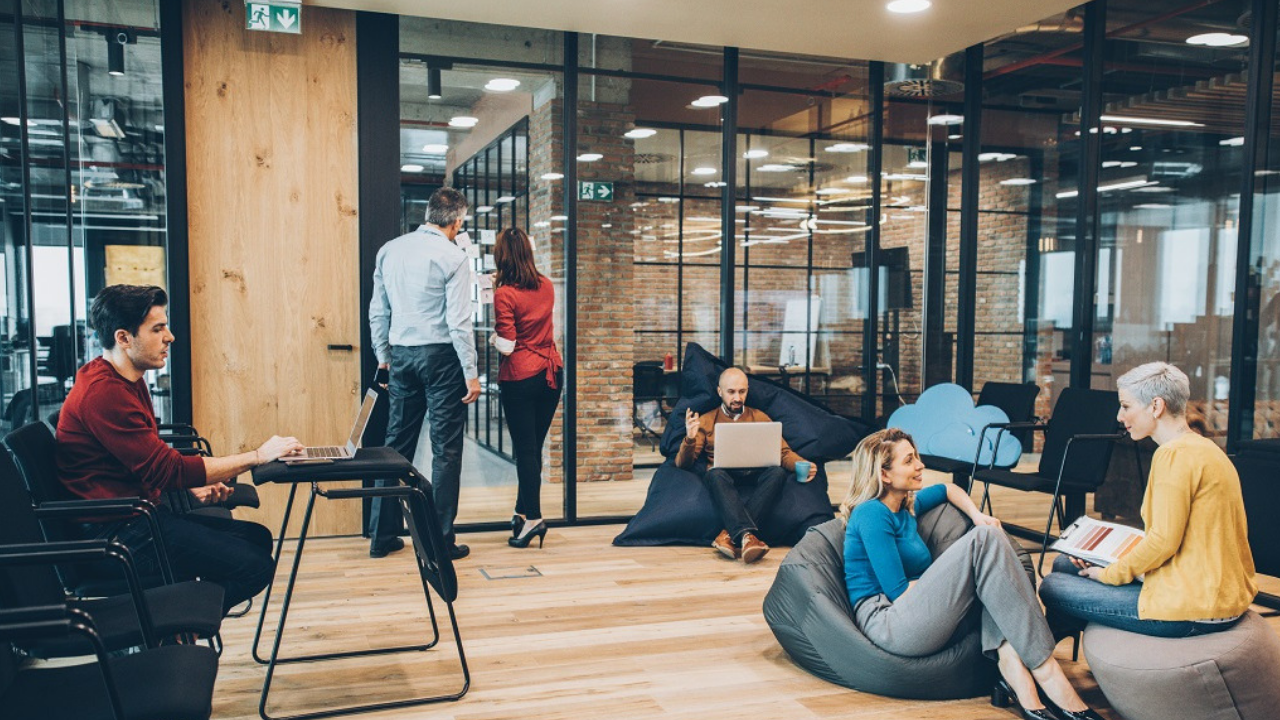While collaborative workspaces seem to be the new norm over cubicle-filled, private offices, face-to-face communication has still started to dwindle. Modern offices can sometimes isolate employees due to technology becoming the main means of communication.
In fact, research from the New Economics Foundation found that 1.2 million people suffer from chronic loneliness, which can have a huge negative impact on health and productivity.
Flexible spaces can help combat this by offering a variety of work environments without being tethered to a single desk.
“Agile workspace that can be used for multiple purposes creates social, collaborative areas in the office,” said Guzmán de Yarza Blache, Head of Workplace Strategy, JLL EMEA. “People are more likely to move around and mingle.”
For example, Airbnb’s London location has areas where workers can sit, stand, recline, and has a cafe-like feel, which makes for a healthy balance between work and relaxation.
While technology plays a pivotal role in modern day office life, setting boundaries for it can help create a better connection. Some companies are even implementing technology-free zones to encourage relaxing and interaction among colleagues.
Having a supportive office culture can also motivate employees to use flexible workspaces more often, while fostering healthy working relationships.














